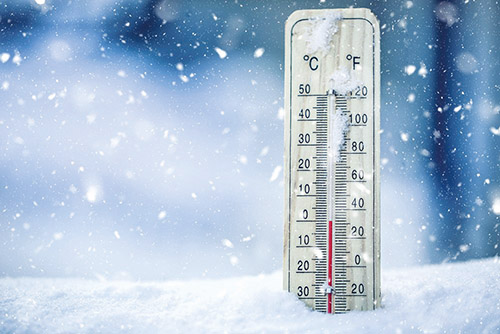
No one except polar bears really likes freezing weather. However, the COVID-19 pandemic has changed many aspects of what we like to do and what we have to do. We have to wear masks despite them being uncomfortable and despite foggy eyeglass lenses. We still have an obligation of tefillah b’tzibbur, despite the difficulties that entails.
I confess that I want to daven with a minyan, hear the Torah being read, and get in a dvar Torah now and then. I confess that I am not comfortable davening indoors. Despite the distancing, despite the HVAC circulating very cold outside air, I have been advised not to daven indoors. I confess that I am in the advanced age bracket where there is a risk factor to being indoors for any length of time with other people.
Our shul maintains an outdoor minyan during the week and on Shabbos. I confess that despite the cold days we have rarely missed a day. When that does happen, there is always a later minyan elsewhere in the community. I confess that I am frustrated when we are just short one or two people. We do Zoom the davening, so occasionally one of the Zoomers makes the minyan.
I confess that I don’t understand why daily minyan participation, even before COVID-19, is still not more popular. Somehow many of the yeshiva graduates in our midst have tuned out this fundamental obligation. Maybe this is part of the Orthodox-light syndrome—nominal Shabbat, kashrut, mikva and not much else. Part of this is due to the notion that there will always be others to make the minyan. So when there is a yahrzeit or a baby naming, the minyan is always there. But where is the ba’al simcha the next day?
I confess to being angry that the bulk of those who attend outdoor services are in my age group. Not all are retired. And what about Shabbos or Sunday? It’s not as if the indoor minyanim are all fully populated either. Where are all the young men in our community? I confess that we are so very proud that young families are moving in. Kein yirbu. Where are they in the morning and in the late afternoon? Most are working from home.
I confess that as the Gemara teaches, we no longer know how to properly and effectively offer tochacha (rebuke, criticism). I have been accused of sounding like an angry old man. When I see and experience young men who have gone through the yeshiva but the yeshiva has not gone through them, then, yes, I am angry. The system has somehow failed. I can’t help being old. Worse still, I confess that I am worried that when COVID-19 is finally vanquished, the stay-at-homes will continue to stay at home.
A minyan requires a collaborative effort. Sometimes it is inconvenient. (See Bialik’s “HaMasmid.”) Often the weather is inhospitable. But we are a community. We rely on each other, not just for smachot or, rachmana litzlan, tragedies. In our daily minyan there are a number of men reciting Kaddish. Helping one’s neighbor, the essence of chesed, does not only apply when it is easy to do so. If it’s cold outside for a 30-40-year-old sipping his morning coffee, it is also cold for us AKs waiting for a minyan.
Rabbi Dr. Wallace Greene has attended minyan in Bergen County since 1971.










